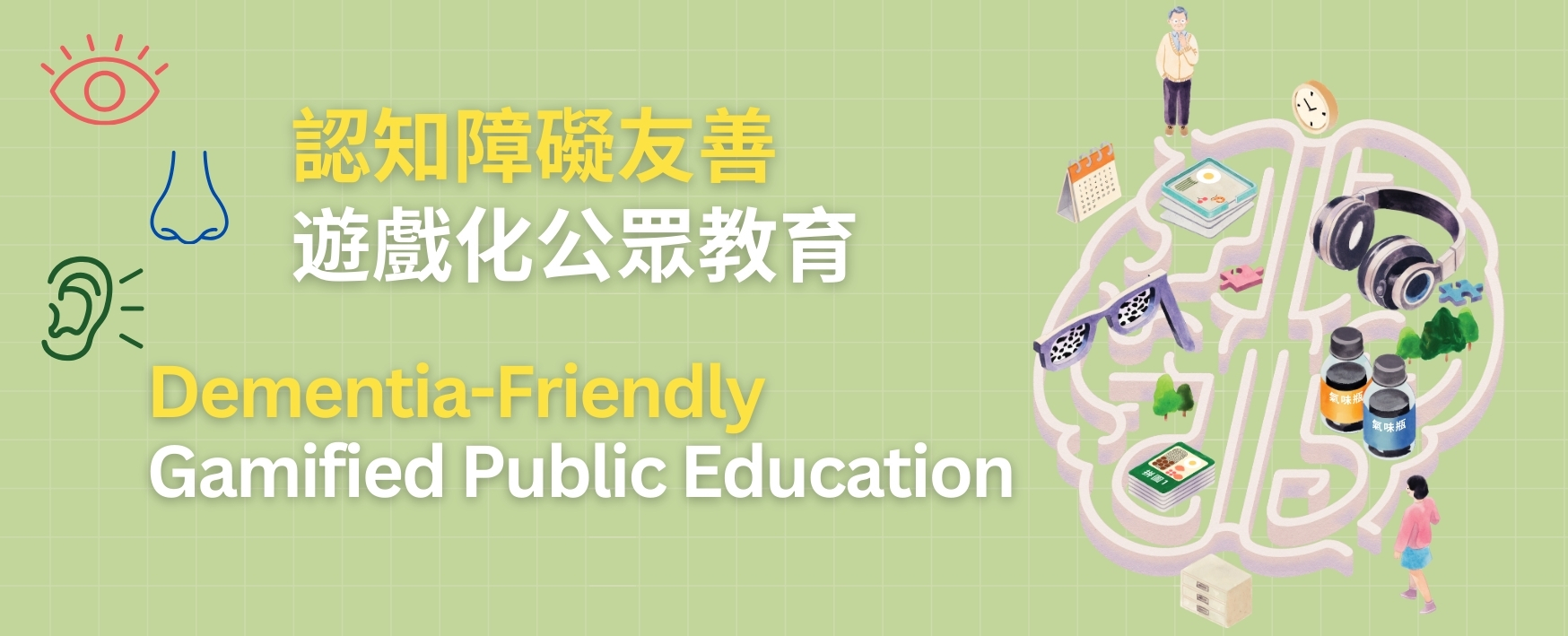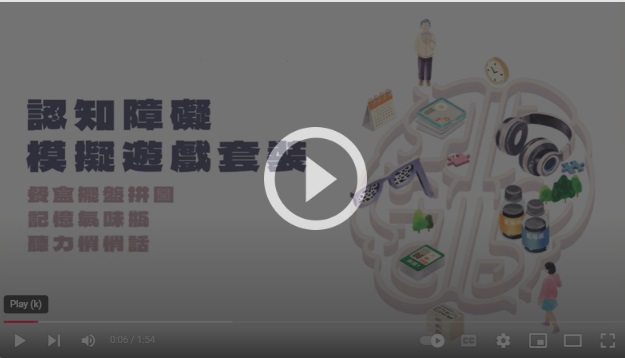According to information from the Hong Kong Alzheimer's Disease Association, currently, one person is diagnosed with dementia every three seconds globally. In Hong Kong, one in every ten elderly individuals aged 70 or above is a dementia patient, and the prevalence rate among those aged 85 or above is as high as one-third.
Therefore, J.C.DISI and Yan Oi Tong have co-organised the "Dementia-Friendly Gamified Public Education" project. The aim of this project is to conduct dementia-friendly public education through game-based learning. It is hoped that the public can understand the daily challenges faced by people with dementia through this initiative, develop empathy for them, replace prejudice with understanding, and change the negative attitudes of the public towards individuals with dementia.
Opinions and Data Collection
At the initial stage of the project, the project team visited Yan Oi Tong's community centers in the New Territories East and West regions, and conducted interviews with various stakeholders, including frontline workers, caregivers and volunteers, to gather a wealth of valuable information and insights that would inform the next phase of game design.


Game Design Phase
To understand the basic knowledge of dementia among community members and their opinions on game types, we, in collaboration with the Yan Oi Tong Dementia Service Long-term Development Working Group set up a public education street station in the Tuen Mun district to conduct surveys and voting activities. During the process, we collected a wealth of opinions from the residents, which inspired the creative team regarding game types and content.


Game Prototype Testing
Based on the feedback collected earlier from frontline workers and staff, we studied several game design prototypes. Together with the Yan Oi Tong Dementia Service Long-term Development Working Group, we conducted playtests with residents and the public. Through these playtests, we gathered a wealth of feedback and suggestions on game flow, difficulty levels, rules, message delivery methods, and prop design, providing many insights for the next stage of game design and development.


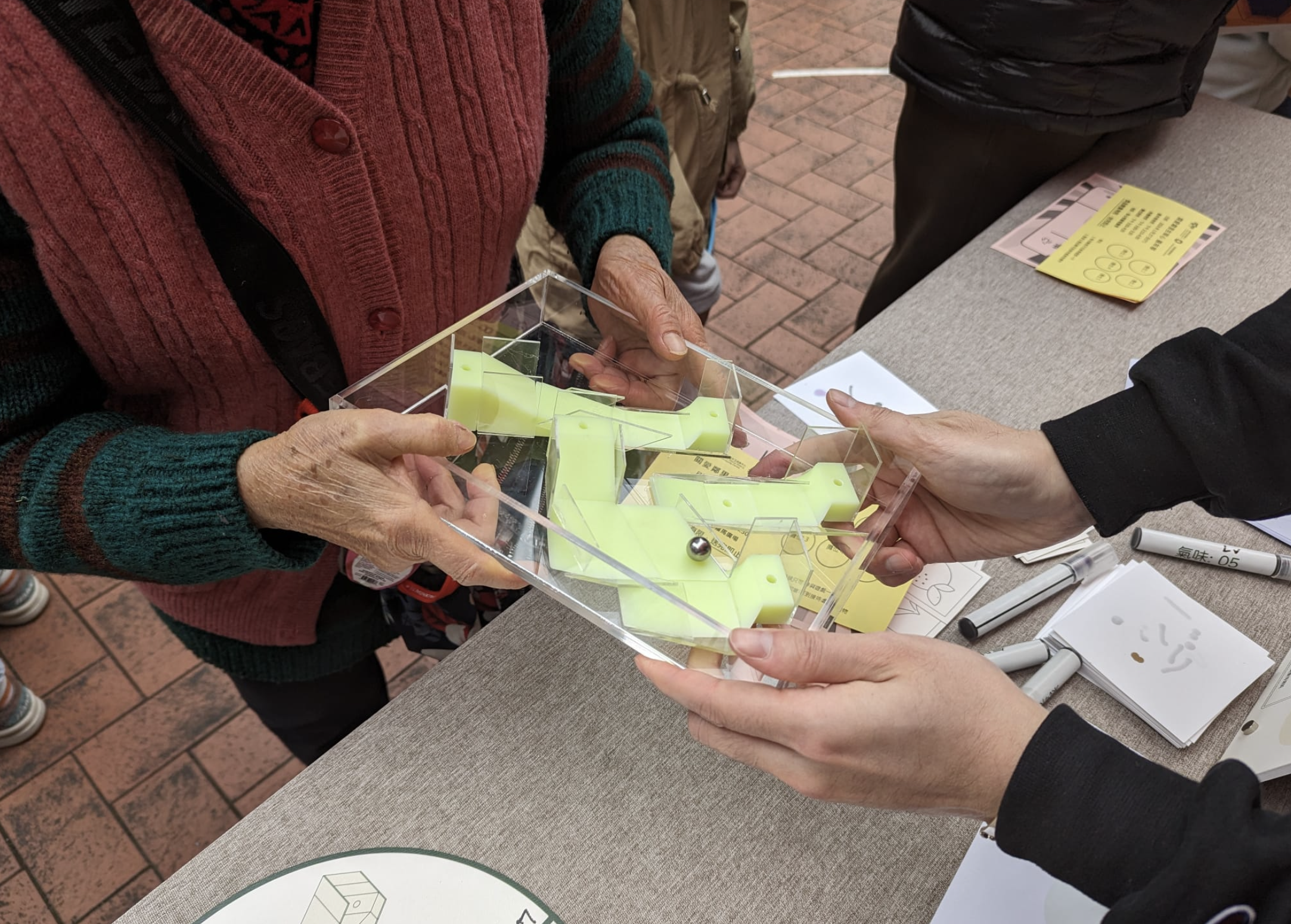
Design Outcome
The game tool kit simulates three sensory experiences: visual, auditory, and olfactory, allowing players to experience the difficulties that people with dementia may face in daily life and empathize with their feelings.


The 3 sets of sensory games tools are put in a drawer-style box for easy categorisation of props, storage and transportation.

The visual game allows players to experience common eye diseases of PwD, such as glaucoma, macular degeneration, diabetic retinopathy, and ptosis. Players have to hold special lens filters in the game to simulate the eye conditions and then complete a puzzle game with the theme of arranging food produce in a lunchbox.


The auditory game simulates the hearing difficulties faced by PwD in daily life, replicating their struggles with environmental noise interference and difficult concentration. Players need to wear headphones playing noisy environmental sounds and engage in various tasks with the staff, including simple calculations, memory games, and sentence repetition.


The olfactory game allows players to experience the dull and insensitive sense of smell of PwD, simulating their difficulty in identifying correct scents. Players will have to name the ingredients in the mix of two fragrant essential oils.
Game Features
Due to the gradual loss of sensory abilities, the ability of PwD to communicate normally with others decline progressively. It becomes challenging for ordinary people to understand the feelings of these patients. The above three sets of game tools can simulate sensory experiences of the patients, allowing players to put themselves into the shoes of PwD and experience their challenges in daily life. The features of the simulation game set are as follows:
-
Flash Game Tools - The games are designed to enhance players’ understanding towards cognitive impairments within a short five-minute gameplay session. Through simple and engaging interactions, players can quickly grasp basic knowledge about cognitive impairments and coping strategies. Additionally, the game design is flexible and suitable for activities in different occasions, such as street stations, carnivals, and other outdoor events. The games can be seamlessly integrated into different scenarios to provide participants with valuable learning experiences.
-
Easy to Pick Up - The game rules are simple and clear, making it easy for players of different ages and backgrounds, including teenagers, caregivers, and the young olds, to understand and participate effortlessly.
-
Immersive Game Tool Kit - Through immersive game tools, we aim to allow players to experience the various physiological symptoms and difficulties that cognitive impairment patients face in their daily lives. These game designs aim to simulate real-life situations of patients, enabling players to understand patients’ challenges and needs more comprehensively. Through this immersive experience, players would enhance their empathy for individuals with cognitive impairments and also eliminate biases and misconceptions.
Through these design features, we hope to attract different types of players, enhance players' acceptance towards the PwD, and promote “Replacing Judgement with Understanding” for PwD.
Result of User Testing Workshops
With the support of strategic partner Yan Oi Tong, J.C.DISI organised a series of seven public user testing workshops for the "Dementia Simulation Game Tool Kit" from July to August 2024. A diverse segments of the public, including teenagers, carers, and young-olds were engaged, and we were able to verify whether the game design aligned with its educational objectives. Looking ahead, we hope to collaborate with various NGOs and expand our reach to different sectors and levels, including primary and secondary schools, and frontline workers who interact with people with dementia, such as those in security services and the catering industry. Our target is for the game to serve as a tool for employee training and development.



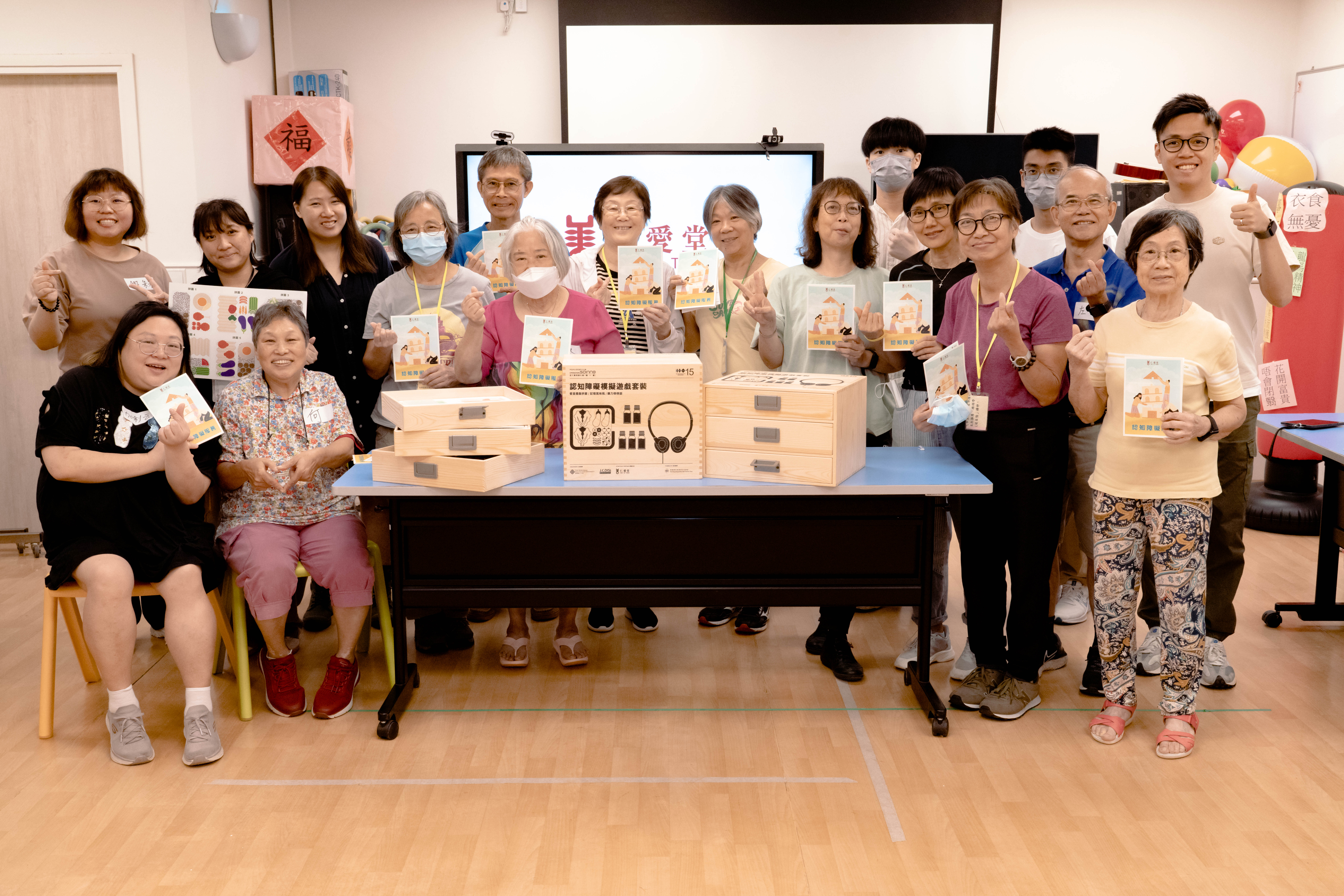
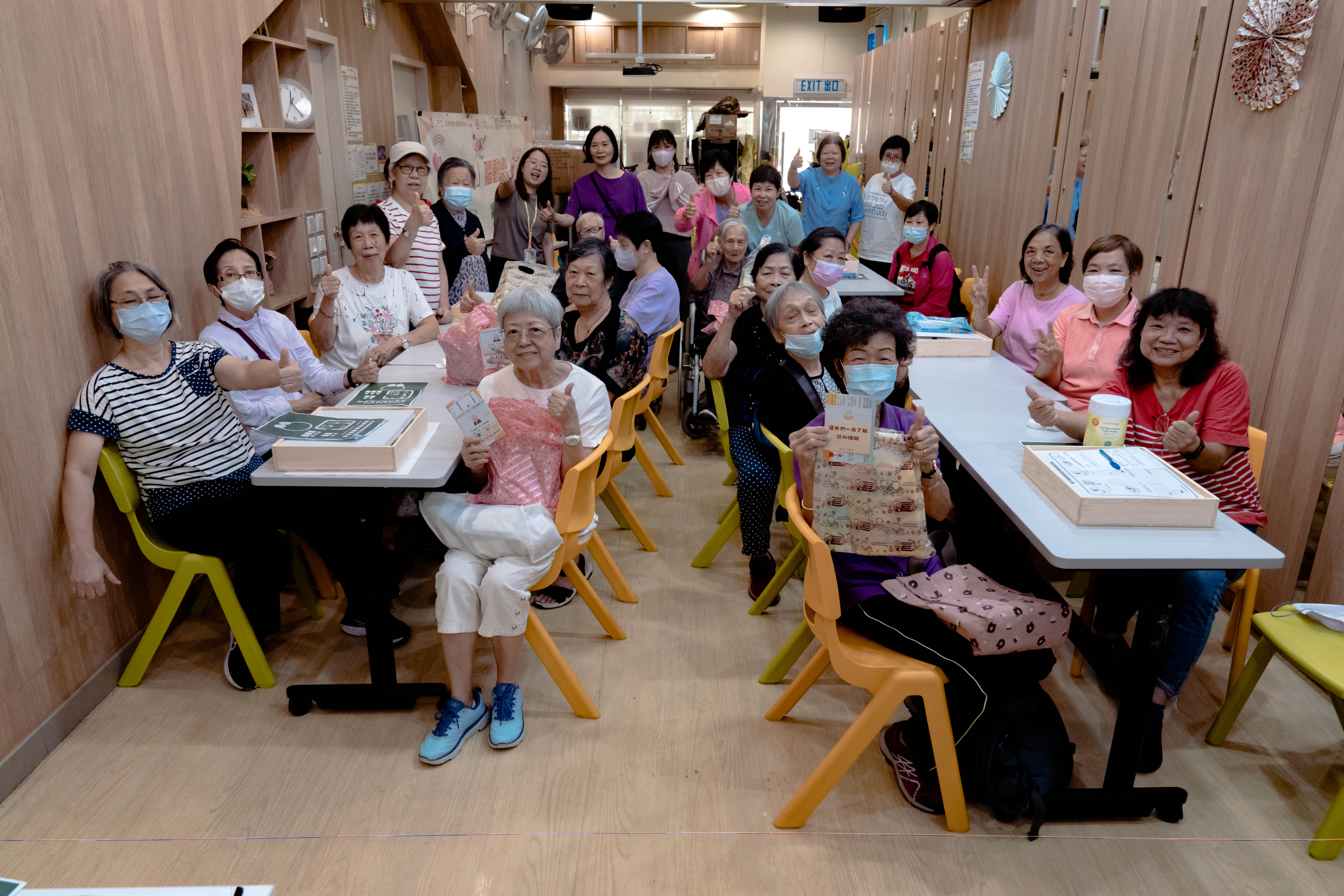
We collected over 80 reviews from the above public trial workshops, and the feedback has been overwhelmingly positive. The following paragraphs summarize the main opinions and evaluations:
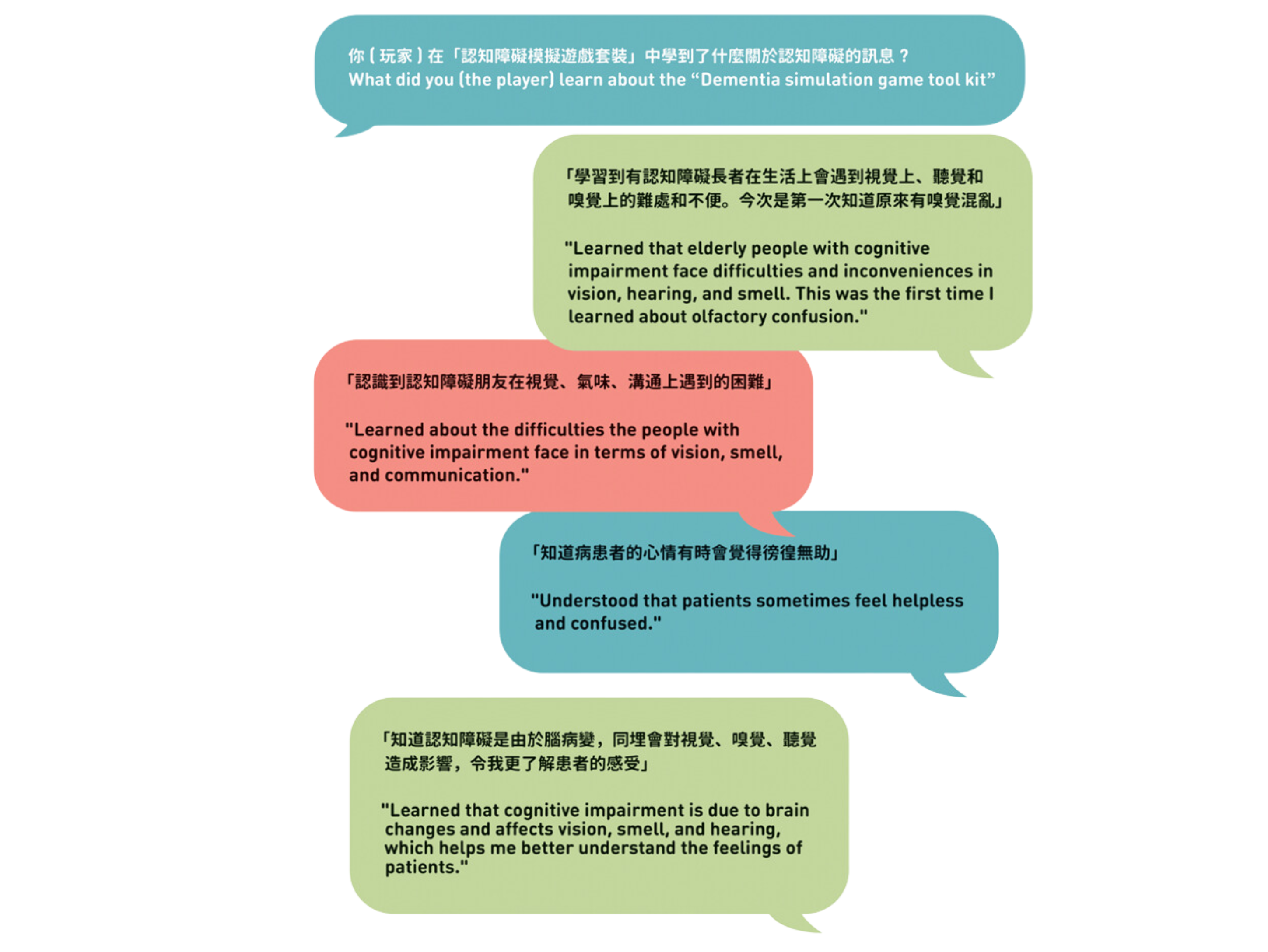
We aim to collaborate with NGOs in the future to bring these games to various centers. Additionally, we seek to expand to different social sectors, including primary and secondary schools and frontline workers of various industries who may interact with individuals with cognitive impairments, such as security services and the food industry. We hope these games can serve as training and development tools for employees, enhancing learning effectiveness and engagement through gamification.
Yan Oi Tong is dedicated to serving the elderly with dementia. It founded Hong Kong's first non-profit memory center in 1999 and later established four daycare centers for the elderly with dementia. With the rise of the aging population, the Elderly Commission's "Elderly Services Programme Plan" estimated that cases of dementia will surge to nearly 400,000 by 2051, tripling the current number. Therefore, in 2015, Yan Oi Tong introduced and has since been actively developing a non-pharmacological intervention method – "Play Intervention for Dementia" (PID) in service units to address the psychological needs of the elderly with dementia. This method helps seniors delay brain degeneration and maintain self-care abilities. Furthermore, it alleviates caregivers' stress and improves quality of life.
For more information on this action project, please refer to the Dementia Simulation Educational Game Kit Action Project Report (coming soon).
